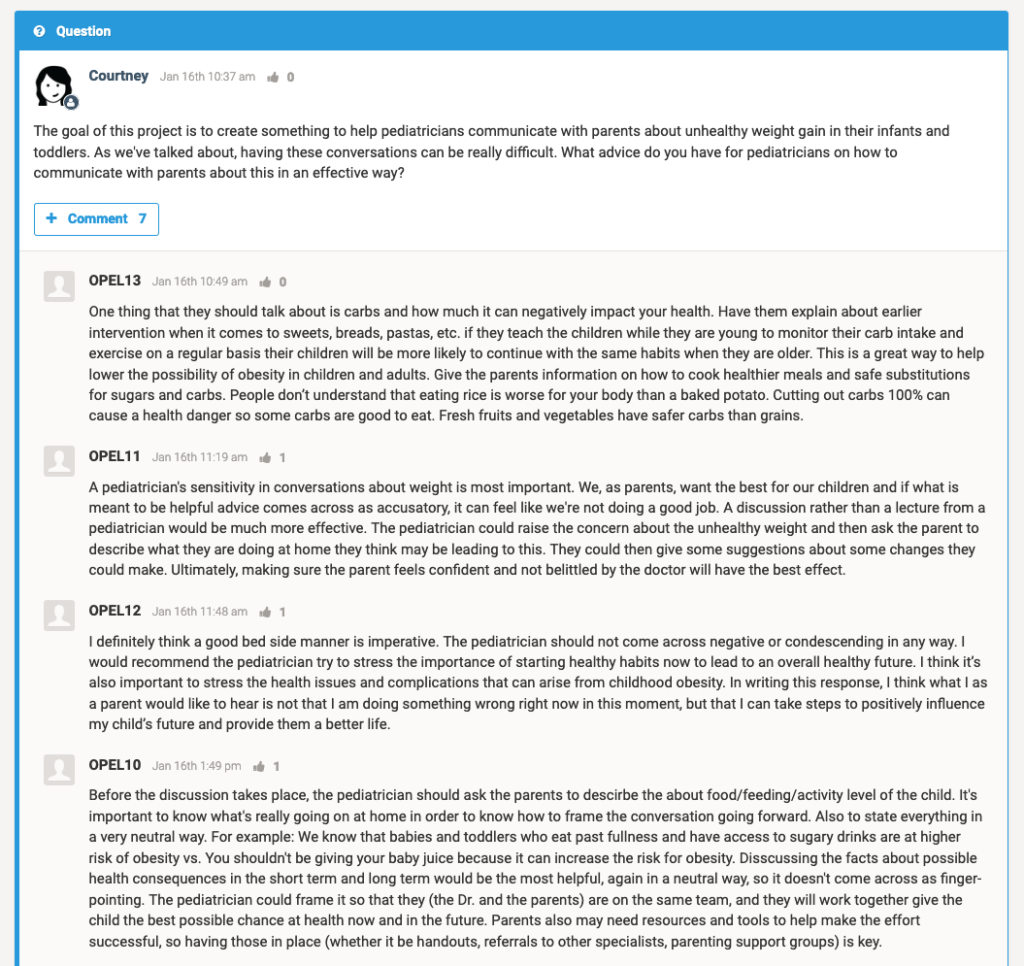Research Jam is part of the Community Health Partnerships program of the Indiana Clinical and Translational Sciences Institute (CTSI). It offers a collaborative space, called a “Jam,” to various participant stakeholders involved in a study such as researchers, patients, and community members. Research Jam, which is more formally known as the Patient Engagement Core (PEC), specifically engages study stakeholders through an interactive research process that invites them to play an integral role in defining and solving study challenges.
Research Jam was created seven years ago to better connect the community through patient-engaged research methods. Though they are not considered focus groups, jams are similar to focus groups in the way that they present explicit knowledge. Jams empower people to express their thoughts and ideas through what they make, say, and do.
In the past, jams have been held in person, and were very collaborative. They were quite successful when they were held face-to-face. However, as COVID-19 forced the state of Indiana into a lockdown and a long-lasting work-from-home situation, the team behind Research Jam had to find ways to keep the activities going online. They’ve taken advantage of online tools, like Zoom, to continue the process of keeping the community engaged in research.

Virtual research jam poll
Recently, a Jam was held with parents of children ages 0-24 months to understand parental attitude around obesity, specifically during infancy. An online poll tool was used to ask questions to participants and engage them in conversation about how pediatricians should raise the question about childhood obesity.
“Because we are online now, we’re able to engage people from all over the state of Indiana and the entire country,” says Lisa Parks, MPA, Project Specialist, Indiana CTSI Patient Engagement Core. “People are able to participate wherever they are.”
So far, 24 virtual jams have been held in 2021. Through the use of online tools, there are more options for engagement and participation. The team hopes to continue the use of these tools, such as online polls, even after the pandemic has ended.
Learn more about Research Jam here.
